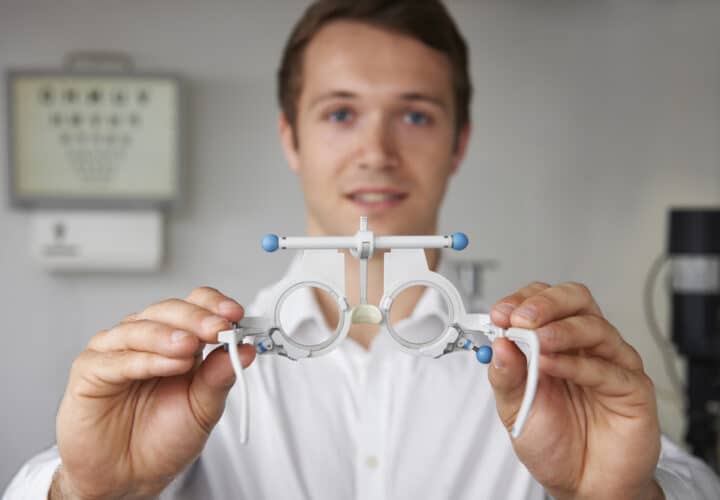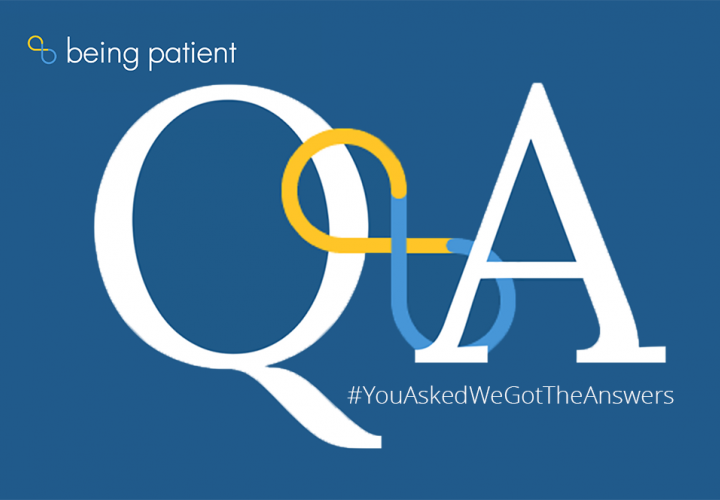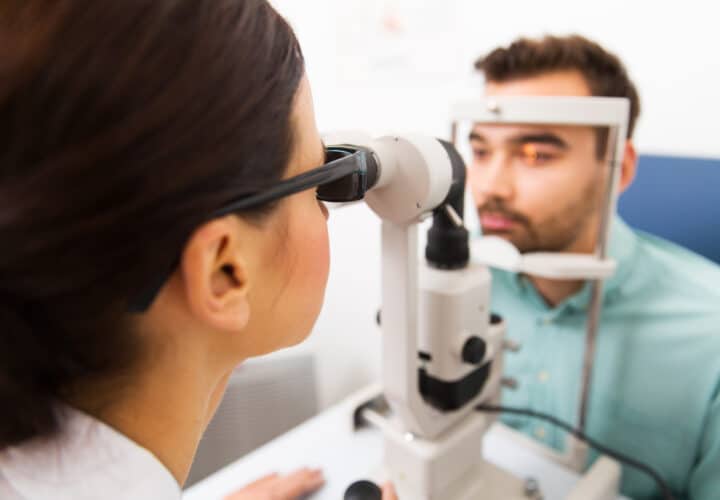We tend to think of problems with hearing, eyesight and thinking as just another part of getting older. And to an extent, those functions do decline over time. But we know now that neurodegenerative diseases like Alzheimer’s are not part of a normal aging process. Now, a new study shows that protecting a factor commonly associated with aging—eyesight—might keep your brain humming along, too.
In the past, studies have shown that declining eyesight and hearing are linked to cognitive decline. Studies have not been able to prove that a softening of those senses actually causes memory problems, but scientists have speculated that being unable to hear or see causes a person to feel isolated, which is also a risk factor for dementia.
But which came first? Did failing eyesight cause problems with thinking, or was it the other way around? In a University of Miami study of 2,520 people over 65, they found that worsening vision was a better indicator of worsening cognition than the reverse. In other words, a person’s eyesight could predict their cognition more correctly than cognition determined eyesight. That means, said study authors, that vision is likely driving cognitive decline—and so protecting vision could help preserve cognition.
This was the conclusion of several scientists who weren’t involved in the study from University College London, who said, based on its results, that “…improving (or protecting) visual function may be a viable intervention to prevent or control cognitive decline in older age.” If this proves to be the case, it could make a difference in the fight to prevent dementia–especially considering that the number of people with dementia will almost triple—from 50 million to 132 million—by 2050 and the number of blind seniors will rise from 38 million to 115 million in that time.”
Poor vision can affect cognition in one of two ways, according to most scientists. First of all, it can lead to poorer wellbeing and inability to care for oneself, resulting in a lack of stimulation—known as the sensory loss consequence theory. The second is that vision and cognition degrade at the same pace based on a common factor like inflammation. Because this study found that vision was more likely to determine cognition, the authors theorized that the first is true.
Other studies have shown that the eyes might provide some insight to the changes happening in the brain. New technology has allowed researchers to see that beta-amyloid, the protein that accumulates in brains with Alzheimer’s, is actually reflected in the eye, too. One day, pictures of the eyes might even be able to diagnose Alzheimer’s years before symptoms begin.
This study was published in JAMA Ophthalmology.



